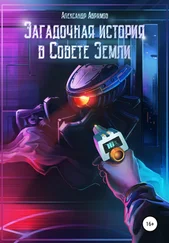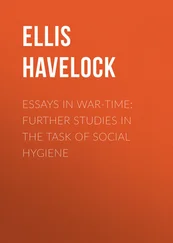Александр Абрамов - The Time Scale
Здесь есть возможность читать онлайн «Александр Абрамов - The Time Scale» весь текст электронной книги совершенно бесплатно (целиком полную версию без сокращений). В некоторых случаях можно слушать аудио, скачать через торрент в формате fb2 и присутствует краткое содержание. Жанр: Фантастика и фэнтези, на английском языке. Описание произведения, (предисловие) а так же отзывы посетителей доступны на портале библиотеки ЛибКат.
- Название:The Time Scale
- Автор:
- Жанр:
- Год:неизвестен
- ISBN:нет данных
- Рейтинг книги:4 / 5. Голосов: 1
-
Избранное:Добавить в избранное
- Отзывы:
-
Ваша оценка:
- 80
- 1
- 2
- 3
- 4
- 5
The Time Scale: краткое содержание, описание и аннотация
Предлагаем к чтению аннотацию, описание, краткое содержание или предисловие (зависит от того, что написал сам автор книги «The Time Scale»). Если вы не нашли необходимую информацию о книге — напишите в комментариях, мы постараемся отыскать её.
The Time Scale — читать онлайн бесплатно полную книгу (весь текст) целиком
Ниже представлен текст книги, разбитый по страницам. Система сохранения места последней прочитанной страницы, позволяет с удобством читать онлайн бесплатно книгу «The Time Scale», без необходимости каждый раз заново искать на чём Вы остановились. Поставьте закладку, и сможете в любой момент перейти на страницу, на которой закончили чтение.
Интервал:
Закладка:
‘Why the “last”?’
‘The bar’s been sold.’
‘Who to?’
‘To me.’
We exchanged glances. It was clear our birds had flown. From the door came the words: ‘Hands up!’
Policemen with automatics stood in the open doorway. Janek and I raised our hands, but Woyekh suddenly sprang forward and shoved me forward towards the door and the police. An even stronger impact sent me into darkness.
I came to standing in the doorway under the awning. The rain was whispering as before and the outline of everything around me was lost in a dense watery net. My head hurt and it was with difficulty that I heard the last of Leszczycki’s words as he stood beside me: ‘… and there’re no taxis’.
And, in fact, there were no taxis. I couldn’t remember how long we’d been waiting for one. In fact, I remembered nothing at all. An enormous lump like a tumour had appeared on my temple under my hair, as if something had fallen on my head. When? Where? I strained to remember, and couldn’t. Familiar things would suddenly swim into my brain, appearing and then misting and bursting like bubbles of marsh gas: faces, names, cars, an ambulance, a yellow Plymouth… I looked around and saw it on the opposite corner under a lamp like the one under which we stood.
‘Do you see that?’ I asked Leszczycki. ‘Maybe they’ll drive us.’
‘Can you see the driver of that car?’
The latter had just got out of the car carrying some sort of stick or a pipe and passed under the awning over the basement.
‘What’s he want a stick for?’ I asked in surprise. ‘Is he lame or something?’
‘That’s an automatic, not a stick. Speak quietly,’ Leszczycki warned.
Suddenly I remembered that basement and the blind Ziga and the dead gunmen. But a live one was standing near the basement waiting for the door to open. And it did open; three men in wet raincoats carried out something that looked like a rolled-up carpet. The driver with the automatic opened the car door, I was going to rush towards him.
‘Where are you going?’ hissed Leszczycki, grabbing me by the sleeve.
‘I’ve got to help…’
‘Who? Are you sure it’s not a body? And what are you going to fight automatics with, Mr Man from La Mancha – bare hands and a biro?’
At that moment the wind brought their voices to us. ‘It’s a book – it was in his hands.’
‘Shake it. Maybe something will drop out.’
‘I have. There’s nothing in it.’
‘Then throw it away. He won’t be doing any more reading.’
Someone tossed away the book and it flashed in the light as it fell behind the car. When they had gone I picked it up. It was only wet on the outside, the thick bound covers with the bas-relief of Mickiewicz had protected it from the rain. A section of its pages was stuck together in a thick wedge and I knew what was hidden there. I swear I was most concerned for Mickiewicz. It would have been interesting to know how many verses were sacrificed to the wastepaper basket with the pages that had been cut out of it.
In the downpour, I couldn’t examine the book. I put Mickiewicz into the pocket of my jacket since my raincoat was already soaked through.
‘I’m drenched,’ I said as I returned to Leszczycki. ‘What do you think happened there?’
He didn’t reply. Suddenly something shifted its position – the light perhaps, or the rain, or the clouds, filled to overflowing with warm water. Or perhaps it was time?
My raincoat was dry as if the rain had only just started and we had managed to get under the awning in time. Five to ten – my watch was only too ready to tell me. The heaviness that was stifling my brain suddenly cleared away. I remembered everything.
What kind of scale had Leszczycki promised me? An hour or half an hour, lived in a different way on each step of the staircase. I counted the changes: six, this was the seventh. That meant that there was one to go. To discuss with Leszczycki the odyssey he had created was meaningless now. This wasn’t Leszczycki standing here. This was a character in the film he was producing, a man from another time. Now he would begin his take…
‘… and there’re no taxis.’
‘But you just saw it.’
‘Where?’
‘On the corner opposite. A yellow Plymouth.’
‘You’re joking.’
‘And you saw its driver, with the automatic, and everything that happened afterwards.’
‘Warsaw jokes – play those tricks on your typist.’
‘You mean you didn’t see anything?’
‘I’m not drunk.’
And it was true. How could this Leszczycki know what the other Leszczycki had seen in another time? Now I was going to leave him to go round another bewitched orbit. A prophecy in a children’s fairy story came to my mind: ‘Take the road to the right and you will find ill-luck; take the road to the left, misfortune will dog you’. In other words, there was nothing to choose between – so onward, worthy hero, go where your eyes lead you.
And I went. My raincoat was soaked again, the water dripped down my hair, down the back of my neck and gave me goosepimples, although it wasn’t really cold – it had warmed up in the heated atmosphere that rose from the city during the day. My eyes didn’t take in the people that came towards me or that I overtook on my way – they were just rain-washed shadows squelching past me. Strange though it was, the abundance of rainwater around me made me want to drink, but the unlit windows visible through the network of raindrops offered no promise of anything to quench the thirst. I don’t remember how many minutes or yards I had walked in the rain when the lighted window of the first cafй or bar rose up in front of me. But I didn’t go in at once, I was halted by the words written on a corner of the window. I read them like Balthazaar at the feast reading the prophecy warning of his death: mene, tekel, fares.
Coffee, tea, home-made cakes.
I could, of course, have gone on, no one was forcing me to enter. But something seemed to shift, not something outside me any more, not the rain, not the clouds in the sky, not the smoky silhouette of the town with its patches of light, no, but inside myself, in some nerve cell of the brain. Somewhere in those invisible cells, the chemical substances they contained had at some time registered in an extremely complex code, such character traits as cautiousness, dislike of risk, desire to evade danger and the unknown – and now suddenly, the code changed its form, the chemistry rearranged itself, the register took on a new pattern.
Nevertheless I looked around before going in and on the corner I saw the Plymouth which by now I knew down to the smallest detail. There was no driver and the key swung carelessly in the ignition. Who was here? Janek or Woyekh? I simply laughed at the thought of the coming encounter and pushed open the door.
The bar was either closing or had already closed and I was met with silence and the clicking of an abacus – the barman had pulled out the till drawer and was totting up the takings in the manner of his grandfathers. It was remarkable that all the Polish cafйs I came across on my odyssey greeted me bristling with tables and chairs piled up on one another.
But the barman greeted me like a barman. ‘Highball?’ he asked.
I explained that in place of the man-size drink he offered me I would be only too pleased to take coffee or tea and some home-made cakes.
‘There’s nothing like that,’ he said. ‘I can only give you a highball with whatever measure of whisky you like.’
In reply I said that I would pay for a quarter of a glass of whisky which he could drink himself and I would have just a lemonade. When I had drunk the full glass I collected up the change in my pocket and threw it down on the plastic bar top. The bronze medal with the tsar-like profile rang out with the change. The medal’s appearance in my pocket was less of a surprise than the way the barman looked at it. I recognized him instantly – the curling ringlets, the grey shadow on his cheeks. He was one of the nocturnal visitors shot by Ziga. And, again, I was surprised less at his having resurrected himself than at the mixture of bewilderment and fear that was expressed on his pale face. I hastily gathered up the medal and put it away.
Читать дальшеИнтервал:
Закладка:
Похожие книги на «The Time Scale»
Представляем Вашему вниманию похожие книги на «The Time Scale» списком для выбора. Мы отобрали схожую по названию и смыслу литературу в надежде предоставить читателям больше вариантов отыскать новые, интересные, ещё непрочитанные произведения.
Обсуждение, отзывы о книге «The Time Scale» и просто собственные мнения читателей. Оставьте ваши комментарии, напишите, что Вы думаете о произведении, его смысле или главных героях. Укажите что конкретно понравилось, а что нет, и почему Вы так считаете.


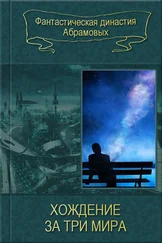
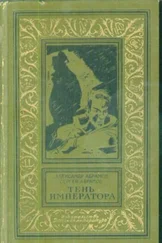
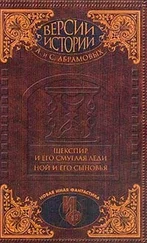
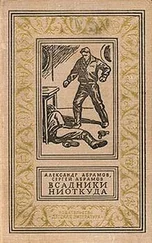
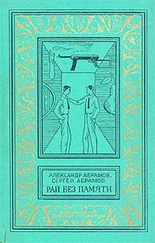
![Александр Абрамов - Юный техник [35 самодельных приборов и моделей для школы, пионерского отряда и дома по оптике, фото, радио, электротехнике и паротехнике.]](/books/416151/aleksandr-abramov-yunyj-tehnik-35-samodelnyh-prib-thumb.webp)
